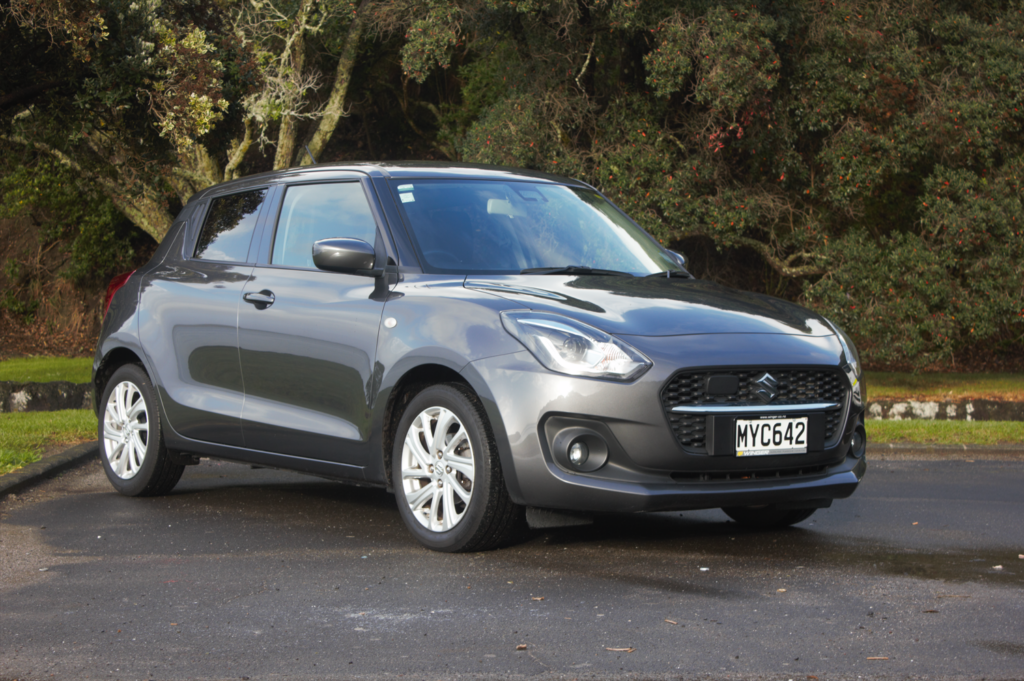
Suzuki Motor Corporation (Suzuki) has outlined its 2030 growth strategy in which it will develop six electric vehicles to be launched in Japan and five electric vehicles to be launched in Europe, and also create biogas options for India.
It also wants to strengthen its co-operative initiatives with Toyota as well as electrify its motorcycle and outboard motor product offerings.
Based on the target date set by each government, Suzuki aims to achieve carbon neutrality in Japan and Europe by 2050 and in India by 2070.
In Japan, starting with the introduction of commercial mini-vehicle battery EVs in FY2023, Suzuki plans to introduce compact SUVs and passenger mini-vehicles, with 6 models to be launched by FY2030. In addition, it will develop new hybrids for mini and compact vehicles, and by combining them with battery EVs, it will offer various options for customers.
In Europe, Suzuki will introduce battery EVs in FY2024, expand to SUVs and B- segments, with 5 models to be launched by FY2030.
In India, Suzuki will introduce the SUV battery EV announced at the Auto Expo 2023 in FY2024, with 6 models to be launched by FY2030. Suzuki will provide not only battery EVs but also carbon neutral internal combustion engine vehicles that use CNG, biogas, and ethanol mixed fuels.
For small and mid-sized motorcycles, Suzuki will introduce a battery EV in FY2024. It plans to launch 8 models by FY2030 with a battery EV ratio of 25%. For large motorcycles for leisure purposes, it is considering adopting carbon neutral fuels.
Suzuki wants to achieve carbon neutrality of domestic plants in FY2035.
At the Kosai Plant, which is Suzuki’s largest production hub in Japan, efforts are made to reduce CO2 emission of painting facilities by 30% through renewal of painting facilities and improvement of painting technologies for efficient and optimal use of energy. The plant also produces green hydrogen from renewable energies including solar power generation. The hydrogen is utilised for verification test of fuel cell transporter, which started from the end of 2022.
At the Hamamatsu Plant, which is the motorcycle production hub, through reduction of energy use and conversion into renewable energy including the expansion of solar power generation facilities, the plant will now target to achieve carbon neutrality in FY2027, earlier than its initial target of FY2030. By utilising the know-how earned at the Hamamatsu Plant to other plants, Suzuki will make initiatives to achieve carbon neutrality of all domestic plants in FY2035.
Suzuki expects the Indian market to grow toward FY2030, but says an increase in total CO2 emissions is unavoidable, regardless of reduction in CO2 emission from products.
It’s unique initiative to tackle this challenge is to produce and supply biogas derived from cow dung in India’s rural areas. This biogas can be used for Suzuki’s CNG models that account for 70% of CNG car market in India.
Suzuki signed an MoU with the Indian National Dairy Development Board and Banas Dairy, Asia’s largest dairy manufacturer, to conduct verification of biogas. It also invested in Fujisan Asagiri Biomass LLC. that makes power generation from biogas derived from cow dung in Japan, and are beginning its study.
It wants to expand the business to other farming areas in regions including Africa, ASEAN, and Japan in the future.
Suzuki will invest 2 trillion Yen in R&D expenses and 2.5 trillion Yen in capital expenditures, a total of 4.5 trillion Yen by FY2030. Of the 4.5 trillion Yen, 2 trillion Yen will be electrification-related investments, of which 500 billion Yen will be battery-related investments.
Some 2 trillion Yen is planned to be invested for R&D expenses in areas including carbon neutrality such as electrification and biogas and another 2.5 trillion Yen is planned to be invested for capital expenditures in facilities including construction of BEV battery plant and renewable energy facilities.
Consolidated net sales forecast for FY2022 is 4.5 trillion Yen, which is growing at a pace to exceed the 4.8 trillion Yen target for FY2025 set in the mid-term management plan.
Suzuki says it would like to grow in line with the emerging countries by contributing to their growth. It wants to double the FY2021 net sales result of 3.5 trillion Yen to 7 trillion Yen in FY2030.








